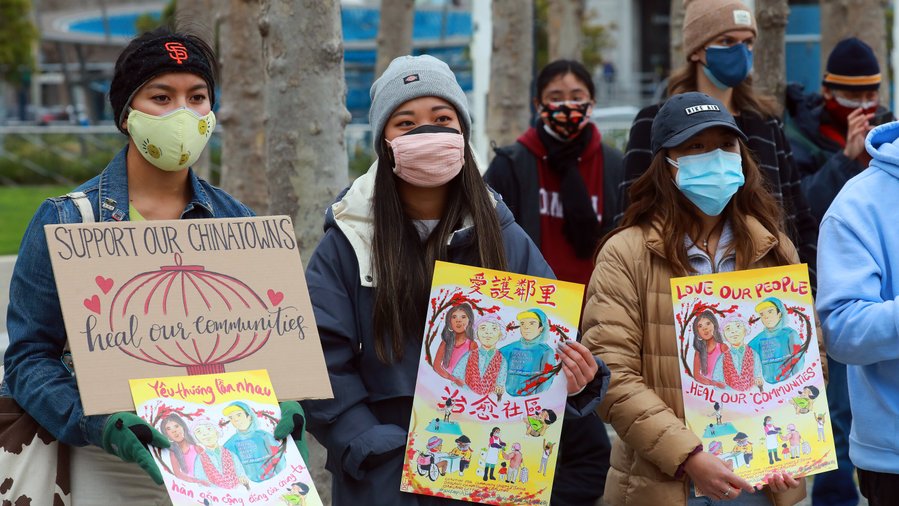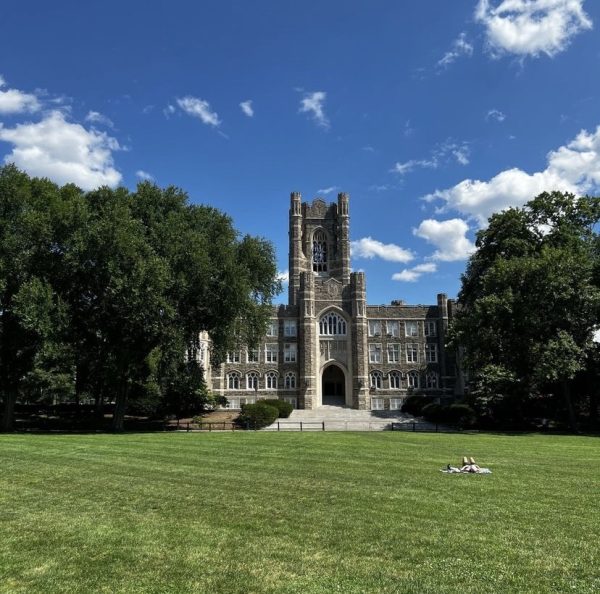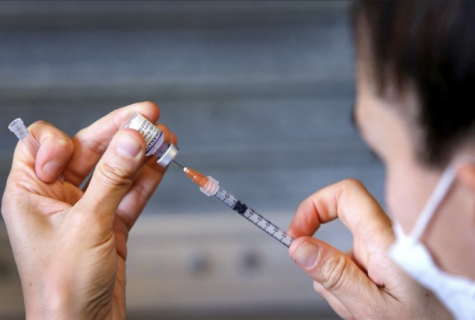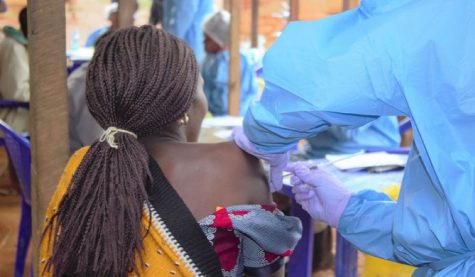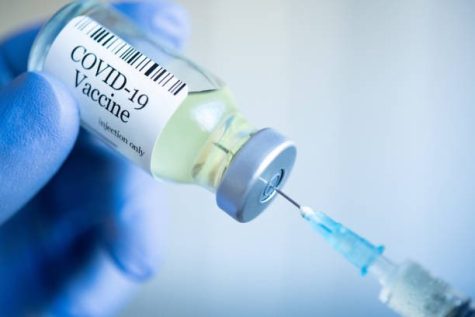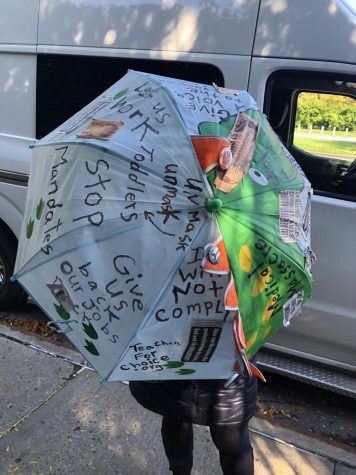A Fordham Perspective on Anti-Asian Hate Crime in New York City
On Monday, March 15, the university released an official statement on the uptick in racially-motivated violence and discrimination against Asian Americans. Rev. Joseph M. McShane, S.J., president of the university, condemned anti-Asian racism and violence.
In the earliest days of the COVID-19 pandemic, some politicians and pundits, most notably former President Donald Trump, were quick to assign blame to China for failing to contain the coronavirus. Trump used phrases like the “China virus” and the “China plague” to describe the COVID-19 virus, helping to spread a misconception that the Chinese American community and other Asian cultural groups were dangerous and more likely to be vectors of the deadly virus.
McShane condemned this rhetoric in his statement to the university community. “It is wrong, of course, when any group is singled out for hateful treatment, but it seems especially bitter to scapegoat a group — one that includes our neighbors, friends and members of the University community — for a pandemic in which they are suffering the same fears and deprivations as every other American,” wrote McShane.
Hate crimes against Asian Americans rose by 150% in the past year in 16 major American cities, according to a recent report by the Center for the Study of Hate and Extremism at California State University, San Bernardino. Stop AAPI Hate, a reporting center for incidents of Asian-American hate crimes, harassment and discrimination, has received almost 3,800 incident reports since March 19, 2020.
“The number of hate incidents reported to our center represents only a fraction of the number of hate incidents that actually occur, but it does show how vulnerable Asian Americans are to discrimination and the types of discrimination they face,” stated the organization’s summary on reported instances over the last year.
Particularly disturbing acts of anti-Asian violence documented in San Francisco, Los Angeles, New York and Oakland, California, have made national headlines since January.
The instinct to find a vulnerable group to scapegoat in the face of a deadly disease has been documented throughout American history, according to Vivian Lu, a professor in Fordham’s anthropology department. Lu cited the initial response to the AIDS epidemic when politicians called the virus a “gay plague” and used its spread as an excuse to spread homophobic rhetoric.
The Asian American community has become a similar scapegoat in the face of the coronavirus pandemic, said Lu. “I think it falls in this longer trajectory of particular communities of color as being viewed as a site of disease,” she said. Lu also pointed out that the initial spread of COVID-19 in New York City was actually mainly linked to travelers arriving from Western Europe.
Lu also said that while hate crimes against Asian Americans have received more media attention in recent months, the community has experienced targeted violence and hate throughout history. She cited the Japanese internment camps the American government used to respond to the perceived threat from Japanese Americans during WWII as well as the less widely-known violent murder of Vincent Chin. Chin was a Chinese American man who was beaten to death in the 1980s by two auto-workers who attacked him after falsely identifying Chin as Japanese and blaming him for the decline of the American auto industry.
Fordham’s Asian Cultural Exchange (ACE) also released its own statement regarding the increase in anti-Asian hate crimes in the last week.
“ACE stands in solidarity with the Asian/Pacific American community,” wrote the club’s executive board. “It denounces the perpetrators of these attacks for their cowardice, bigotry and prejudice against the Asian/Pacific Islander community. Finally, it calls on all members of the community to remain vigilant and to stand up for each other in these unprecedented times of hardship. Violence, hatred or enmity is never the solution.”
Oscar Lei, GSB ’22, vice president of ACE, said he has personally witnessed an increase in hostility towards his family and community in the past year. “Walking down the streets of New York, a place I call home, occasionally my family or I will get the eye of someone walking by, side-glancing at us as if we were a nuisance,” said Lei. “I occasionally see these things happen in or outside my uncle’s restaurant, where people would either glare at you or even say hurtful comments or make disrespectful gestures because of our cultural background and heritage. Although it has happened before in the last year, it has become ever more prevalent.”
Lei’s observation echoes a larger trend in New York City and other major American cities, where many Chinese restaurant owners have experienced a drastic decrease in willing customers. Some Chinatown businesses in Flushing, Queens, experienced losses up to 50% in early March last year, many days before major lockdowns forced restaurants and other businesses to reduce their services drastically.
Mistrust and prejudice extend beyond the Chinese American community. Liz Shim, FCRH ’23, social media coordinator of ACE, said that her family, which is not Chinese, has also felt the effects of anti-Chinese prejudice. “This association of the virus with China affects not only people of Chinese-descent but everyone who looks East Asian, including me,” said Shim.
Yeenon Yu, FCLC ’24, public relations coordinator of ACE, expressed frustration at having to witness loved ones become the target for hate. While she has experienced and witnessed anti-Asian racism her entire life, she said she definitely noticed an increase in open hostility against her community. “Recently, my dad had someone push him in the grocery store, knocking him towards the shelves,” said Yu. “I was standing behind him and was infuriated.”
Yu said her grandparents were also recently verbally harassed near their senior center by a group of teenagers, who yelled racist phrases like “Chinese Virus” and “Kung Flu.” The experience left them badly shaken. “When they told me this story, they said they were traumatized and did not want to go outside anymore,” said Yu. “They felt they were being targeted and felt uncomfortable, even walking so close to their home.”
Shim said that before the coronavirus pandemic, she normally experienced racism relating to a widespread assumption that members of the Asian American community are more intelligent and hardworking than other groups. “Typically, the Asian racism I have experienced before has been perceived as ‘good’ by those who exhibit racist behaviors,” said Shim. “More than enough times, I’ve also been a target of Asian fetishizing, being told that they ‘admire Asian intelligence’ and that I’m ‘an exotic beauty’ by older Caucasian men.”
However, Shim said the racism she experiences has taken a more sinister turn since the start of the pandemic. She described a hateful message she received on Instagram last June. “It said, ‘Asian lives don’t matter. Stanky and fishy,’” said Shim. “Racists are flat-out telling me that my life doesn’t matter, but I know better than to listen to them.”
While the rise in documented instances anti-Asian violence is concerning, Americans should be careful not to allow the response to these attacks to hurt other vulnerable groups, said Lu.
“These stories of Asian Americans being attacked … are often taken up by local politicians to justify increasing police patrols and police presence and funding,” said Lu. These measures can end up harming Black communities, who are historically over-policed and more prone to gentrification. Lu said this exact phenomenon is playing out in Oakland, California today.
“There’s always this danger in talking about some of these issues with Asian Americans,” said Lu. “Their issues can be weaponized to the detriment of other communities of color.”
The response to anti-Asian hate crimes and racism should center on speaking out against harmful rhetoric and educating oneself and others on these issues, said Lei. “I realized from experience that many people who initially exhibit anger or prejudice against Asian Americans or any race or cultural background lack some form of knowledge on the current issues or are too trusting of one side of the argument,” he said.
Speaking out against anti-Asian racism can do a lot to make Asian members of the Fordham community feel safer, said Shim. “It can be terrifying to be a person of Asian-descent right now,” she said. “Let them know that they’re not alone and you’re always there to help.”
Yu said Fordham students who want to fight anti-Asian racism should also consider donating to organizations like Welcome to Chinatown, which supports Asian American businesses. Lei said Fordham students should follow ACE on Instagram (@fordham.ace) for more updates on organizations they can donate to that support the Asian community.
Yu also encouraged students to spread awareness about anti-Asian violence and discrimination online.
“We need to work together to help combat the recent rise of anti-Asian hate crimes,” said Yu. “If you are frustrated, angry, worried, use these feelings as a motivator. Take action! By actively participating in stopping anti-Asian racism, we can become a better and more aspirational role model for future generations.”
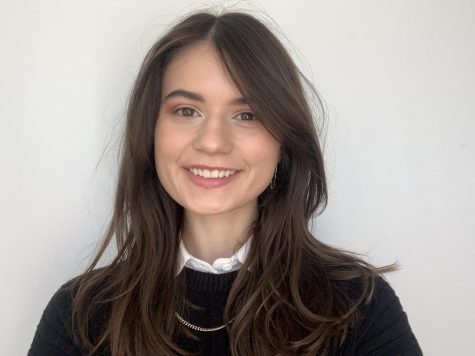
Abbey Delk is a junior from Wheeling, West Virginia, double majoring in English and journalism and minoring in film & television. Her career at the...





































































































































































































